Imperial geoscientists complete UK’s first MSc virtual field trip
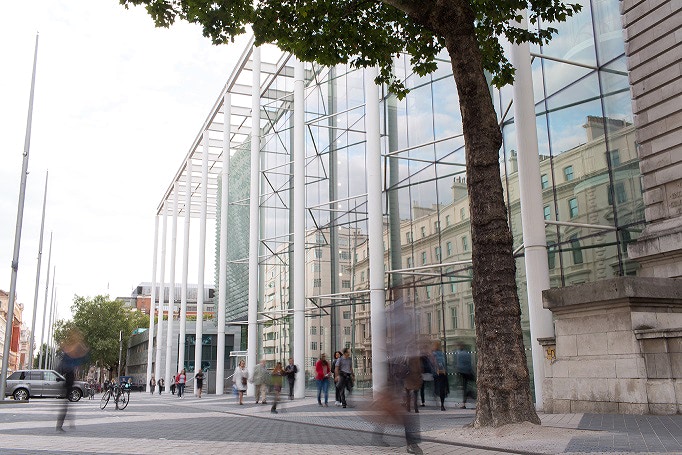
As part of @ImperialCollege’s move to #RemoteLearning, thirty-five MSc Petroleum Geoscience students embarked on a simulated overseas trip to the Pyrenees
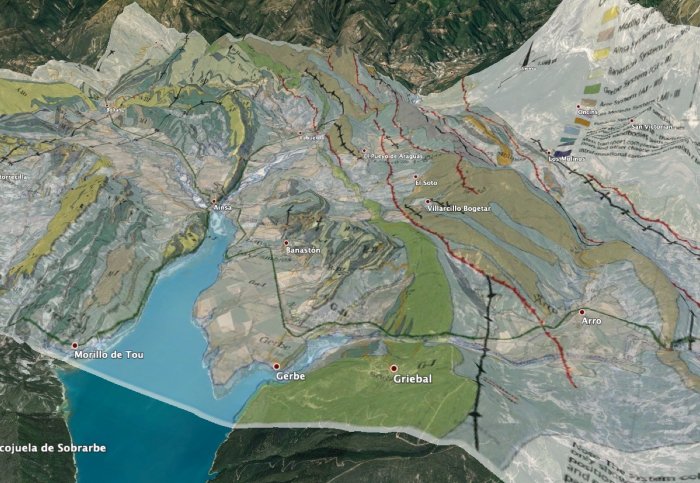
A Google Earth grid overlayed with a traditional map
Students and staff in the Department of Earth Science & Engineering were struck with the news of the COVID-19 outbreak in Europe with only two weeks notice before they were due to embark their flight and spend nine days in the famous Spanish mountain range.
The quick-thinking and expertise of the Department teaching team, alongside the determination of students, ensured the field trip continued in an entirely new format in what is thought to be a first in a UK university setting at Master’s level.
As they would in a physical setting, the group stuck to a regimented schedule of ‘field work’ from 8am until 5pm, with lunch-breaks. At each ‘stop’ on the trip staff and Graduate Teaching Assistants (GTAs) guided students in smaller groups using Microsoft Teams software set up with the assistance of the College’s ICT and Faculty’s Ed Tech team.
Students were set tasks and discussed what could be interpreted from hi-res photographs, Google Earth, and drone-scanned virtual models of geological formations shared courtesy of Professor John Howell, University of Aberdeen, and V3Geo, licensed under Creative Commons (CC-BY-NC).
Reacting to the ingenuity of his colleagues and students, Professor Omar Matar, Vice-Dean (Education) in the Faculty of Engineering, said: “From research, to education, to innovation, our Departments are committed to excellence. Sometimes that requires inventiveness and flexibility, and a virtual field trip perfectly exemplifies that.
“We are making plans to deliver programmes in a number of ways, dependent on progress in the fight against COVID-19. Through our campuses and our remote and online offerings we look forward to providing current and new students fresh perspective in their chosen disciplines.”
A field trip like no other
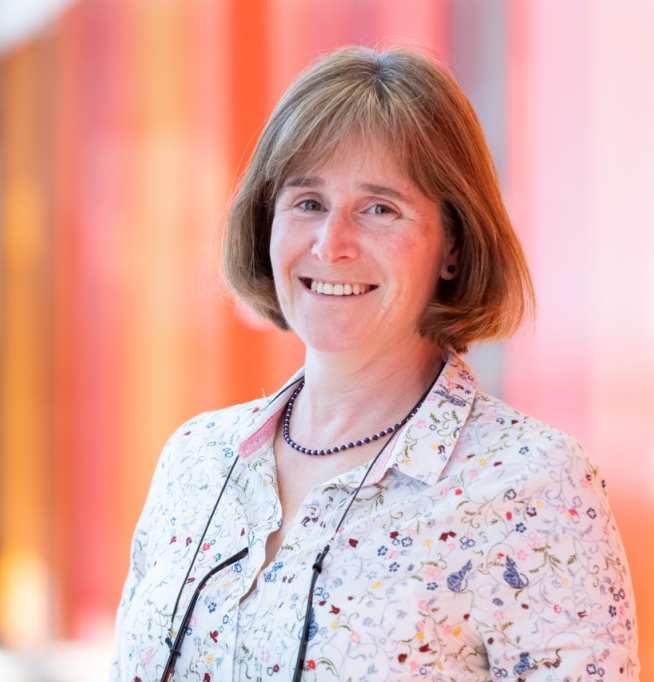
Dr Lidia Lonergan, Reader in Geotectonics, and Professor Gary Hampson, Professor of Sedimentary Geology, led the virtual tour of the Pyrenees.
Dr Lonergan said: “I think we were all quite surprised by some of the unexpected advantages of conducting a field trip in this way. Students were able to use detailed photo panoramas to observe more detail than they would have been capable of in the field in person.”
“Recording our sessions and having a range of back-up exercises also meant that we managed to mitigate most software, internet, personal, or health issues, and ensure all students received an equitable experience.
“Although this trip was successful, we look forward to getting back in the field, as nothing beats the learning experience of looking at rocks in-situ.”
For the four GTAs guiding the student groups the virtual trip was a new experience in the world of teaching. Sam Brooke-Barnett said: “Demonstrating remotely was an interesting challenge, particularly the absence of face to face contact with the students. However everyone adapted rapidly, and screen sharing allowed us to share explanatory sketches and annotate photos on the fly in a way that really facilitated discussion.”
Students also had an opportunity to take part in an online discussion with Richard Jolly, an Imperial alum working with BP. Students appreciated the insight into the industry perspective and, combined with the new digital skills they learned, participants felt they had gained some new employability skills.
Putting observation and sketching skills to the test
Without the ability to interact with the Pyrenees’ well-known landscape, students had to master the art of interpreting not only the information provided in photographs, but also a wider range of topographical and contextual information. Part of this took the form of sketching and sharing this work with their team.
Maria Lake, an MSc student who took part in the virtual trip, was one of many to praise the teaching team and said: “It was a great virtual field trip…I thoroughly enjoyed it!”
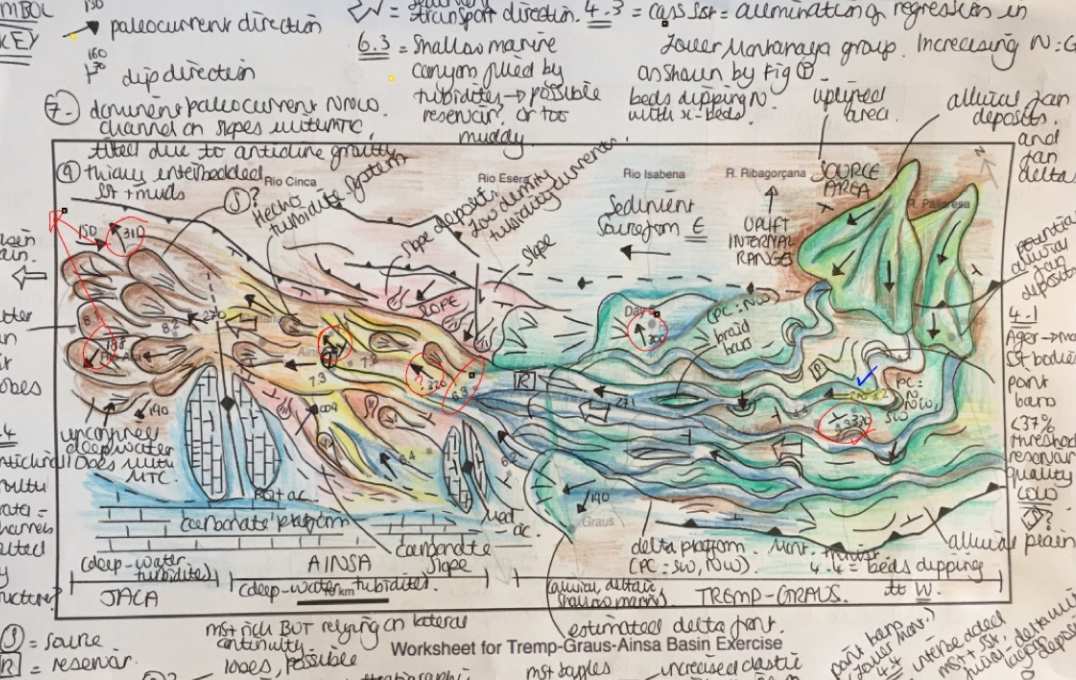
Traditional and digital sketching by the MSc students, showing the Ainsa Basin in the Pyrenees
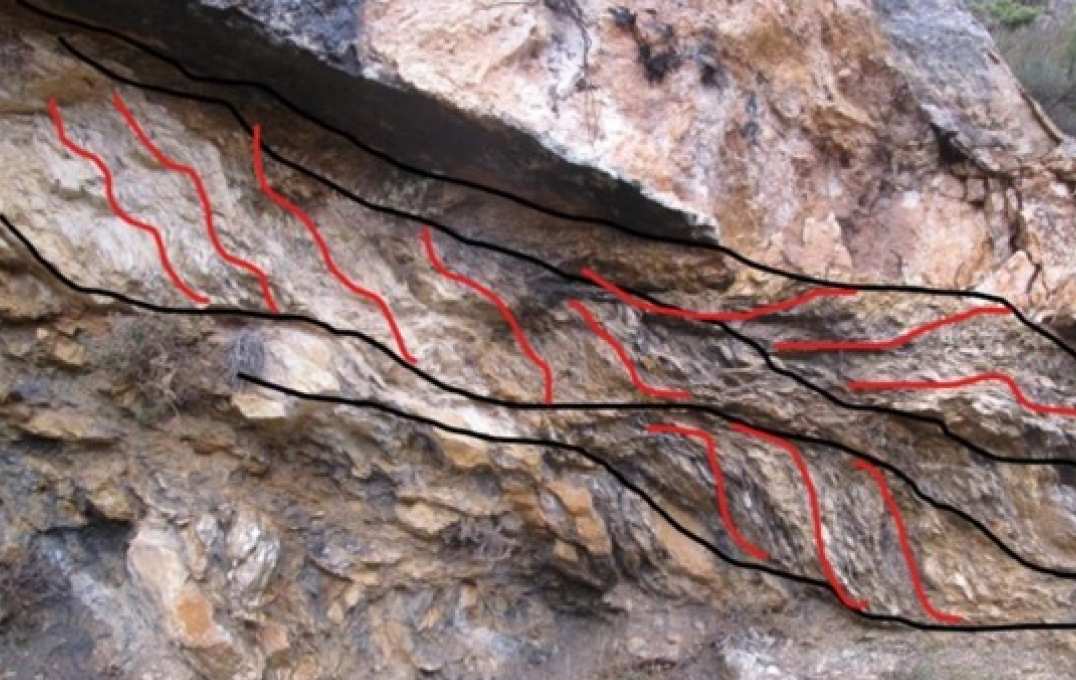
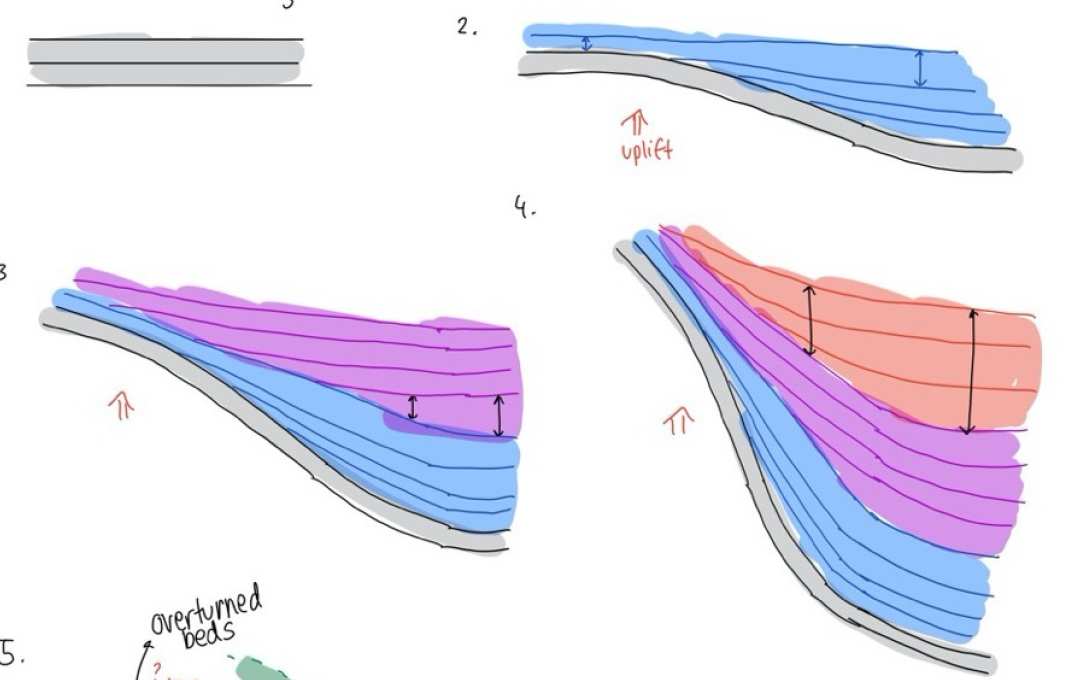
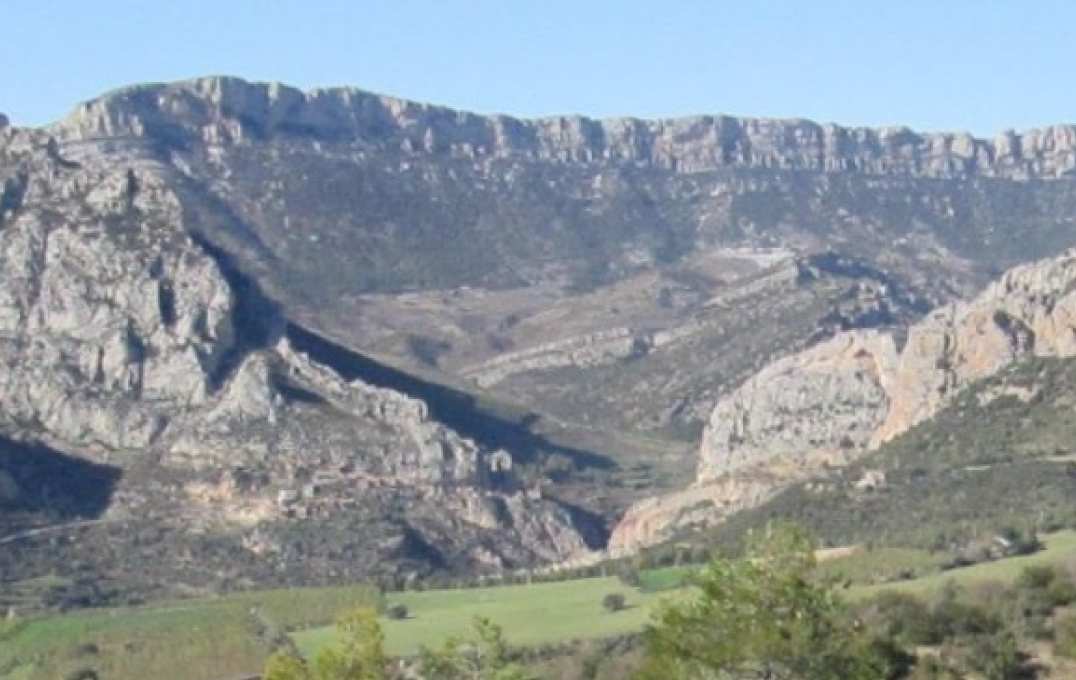
A community, near and far
As teaching staff work hard with students to ensure the College’s educational mission can continue, Departments are also keen to look after their communities.
The field trip is usually one of the highlights of the academic year for postgraduate students, so extra attention was given to pastoral support and gaining feedback from the group throughout the process.
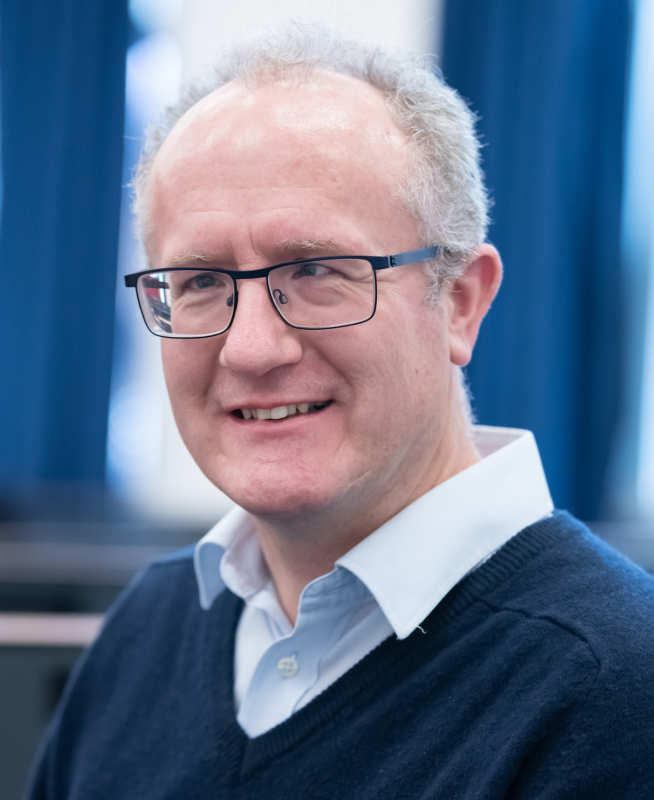
Professor Hampson said: “While I think we all missed the social aspects of the trip – such as sharing a glass of wine or simply spending time in such fascinating and beautiful surroundings – the camaraderie and mutual supporting the group was great to see.”
“I would emphasise those teaching in similar disciplines to be aware that delivering a project of this kind takes a lot of preparation.
“We particularly found that practice made perfect when students uploaded their assessments each evening, although marking took somewhat longer!
“Both staff and students look forward to having the opportunity to make observations in the field once again, but I think we learned a lot about what can be achieved with good quality digital materials and for exploring a location that was well-known to teaching staff.”
Find out more
All postgraduate programmes in the Department of Earth Science & Engineering are available to browse online. Application and enrolment dates remain unchanged by the COVID-19 outbreak.
The College’s Graduate School is at the centre of the postgraduate community and provides details on what studying at Imperial is like.
Current and prospective students can view a wide selection of answers to frequently asked questions on the College’s regularly updated COVID-19 webpages.















Responses